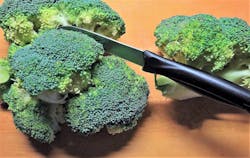A study led by Hui-Yi Lin, PhD, Professor of Biostatistics, and a team of researchers at LSU Health New Orleans Schools of Public Health and Medicine has found that adequate levels of five antioxidants may reduce infection with the strains of the human papillomavirus (HPV) associated with cervical cancer development.
Findings are published in the Journal of Infectious Diseases.
Although previous studies have suggested that the onset of HPV-related cancer development may be activated by oxidative stress, the association had not been clearly understood. This study evaluated associations between 15 antioxidants and vaginal HPV infection status – no, low-risk, and oncogenic/high-risk HPV (HR-HPV) – in 11,070 women 18-59 years old who participated in the 2003-2016 National Health and Nutrition Examination Survey.
Study results showed that lower levels of serum albumin and four dietary antioxidants – vitamins A, B2, E, and folate – were associated with a higher risk of HR-HPV infection. Albumin is the most bountiful circulating protein in plasma, and decreased serum albumin was found to be associated with increased systemic inflammation and impaired immune response. Based on the four dietary antioxidants, the researchers developed a nutritional antioxidant score.
Human Papillomavirus is a well-known risk factor for cervical cancer, which is the fourth most common female cancer and contributed to 7.5% of cancer deaths for women worldwide in 2018. Certain HPV strains are more likely to trigger precursor events leading to cancer development. These strains are called oncogenic or high-risk [HR] HPV strains. Almost all cervical cancers are directly linked to previous infection with one or more HR-HPV infections.

